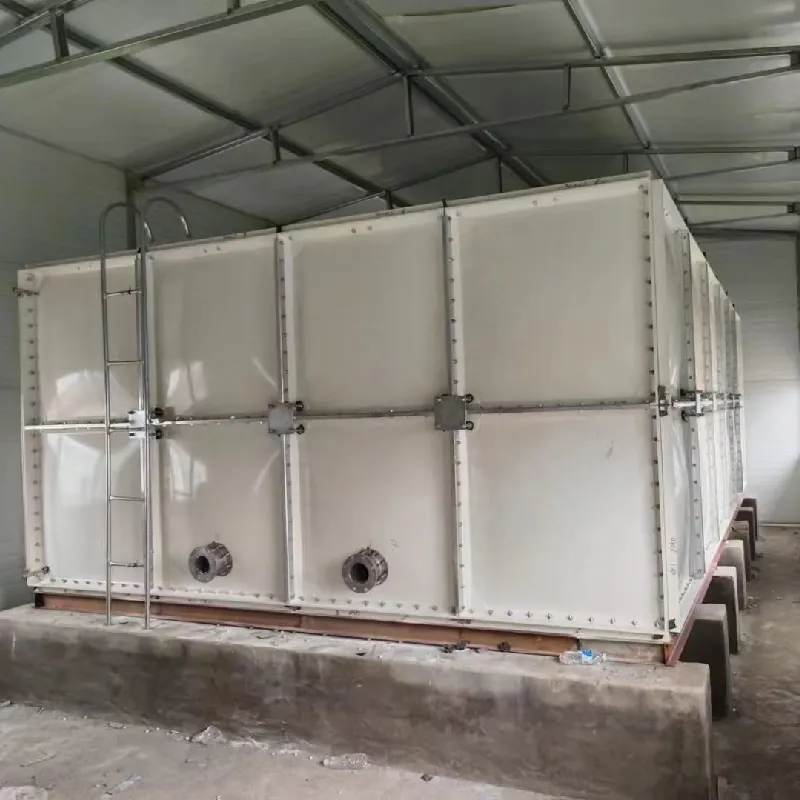loading...
- No. 9, Xingyuan South Street, Dongwaihuan Road, Zaoqiang County, Hengshui, Hebei, China
- admin@zjcomposites.com
- +86 15097380338
- Welcome to visit our website!
Design and Applications of Liquid Filter Vessels for Efficient Filtration
Understanding Liquid Filter Vessels Design, Function, and Applications
In industrial processes, the need for effective filtration of liquids is paramount to ensure product purity, system efficiency, and equipment longevity. One critical component that plays a vital role in this arena is the liquid filter vessel. This article will explore the design, functioning, and applications of liquid filter vessels, shedding light on their importance in various industries.
What is a Liquid Filter Vessel?
A liquid filter vessel is a pressure vessel designed to remove particulate matter and impurities from liquids. These vessels are integral to various processes in industries such as chemical manufacturing, wastewater treatment, food and beverage, pharmaceuticals, and many others. Their primary function is to ensure that the liquid being processed is free of contaminants that could affect product quality or hinder operational efficiency.
Design Features
Liquid filter vessels come in various designs and sizes, tailored to meet the specific needs of different applications. Here are some key design features
1. Materials Liquid filter vessels are commonly constructed from stainless steel, carbon steel, or other corrosion-resistant materials. The choice of material is crucial, as it must withstand the chemical composition of the liquid being filtered.
2. Filtration Mechanisms The design of the filter media can vary—common mechanisms include bag filters, cartridge filters, and self-cleaning filters. Each type offers distinct advantages, such as ease of maintenance, filtration fineness, and the ability to handle different flows.
3. Size and Capacity The size of a liquid filter vessel is determined by the volume of liquid to be filtered and the flow rates required. It is essential to choose a vessel that can accommodate peak flow conditions without compromising filtration quality.
4. Pressure Ratings Many applications require that filter vessels operate under pressure. Therefore, pressure ratings are an essential design consideration. High-pressure vessels must meet stringent safety standards to prevent leaks or catastrophic failures.
5. Inlet and Outlet Configurations Proper fluid dynamics are crucial for efficient filtration. The design of inlet and outlet ports can significantly impact flow patterns within the vessel, making it essential to optimize these features for maximum performance.
Functionality
The operation of a liquid filter vessel involves several stages
liquid filter vessel

1. Inlet Flow Liquid enters the vessel through the inlet port. The design ensures a smooth transition into the filtration area.
2. Filtration Process As the liquid flows through the filter media, solid impurities are captured, while the cleansed liquid continues to flow. The choice of filter media directly influences the filtration efficiency.
3. Collection of Clean Liquid The filtered liquid is collected at the outlet port and directed to the next stage of processing or toward storage.
4. Backwashing and Maintenance To maintain efficiency, many liquid filter vessels are equipped with backwashing capabilities. This allows for the removal of accumulated waste without the need for manual cleaning, thus minimizing downtime.
Applications
Liquid filter vessels find application across diverse industries
1. Chemical Manufacturing In chemical processes, maintaining the purity of reagents is crucial. Liquid filter vessels help remove contaminants that could lead to product inconsistency.
2. Wastewater Treatment These vessels are essential in municipal and industrial wastewater treatment plants. They filter out solids and particulates, making treated water suitable for discharge or reuse.
3. Food and Beverage In the food industry, liquid filter vessels ensure that beverages, oils, and other liquids are free from unwanted particles, thereby meeting stringent safety standards.
4. Pharmaceuticals The pharmaceutical industry relies on liquid filter vessels to maintain the integrity of products by ensuring all liquids are filtered to remove contaminants that could affect drug efficacy.
Conclusion
In conclusion, liquid filter vessels are indispensable tools in ensuring the purity and quality of liquids across various industries. Their robust design, efficient functionality, and adaptability to different applications make them crucial for modern filtration processes. As industries continue to emphasize sustainability and efficiency, the importance of advanced filtration systems like liquid filter vessels will only grow, paving the way for improved manufacturing processes and product quality.
-
The Rise of FRP Profiles: Strong, Lightweight, and Built to LastNewsJul.14,2025
-
SMC Panel Tanks: A Modern Water Storage Solution for All EnvironmentsNewsJul.14,2025
-
GRP Grating: A Modern Solution for Safe and Durable Access SystemsNewsJul.14,2025
-
Galvanized Steel Water Tanks: Durable, Reliable, and Ready for UseNewsJul.14,2025
-
FRP Mini Mesh Grating: The Safer, Smarter Flooring SolutionNewsJul.14,2025
-
Exploring FRP Vessels: Durable Solutions for Modern Fluid HandlingNewsJul.14,2025
-
GRP Structures: The Future of Lightweight, High-Performance EngineeringNewsJun.20,2025
